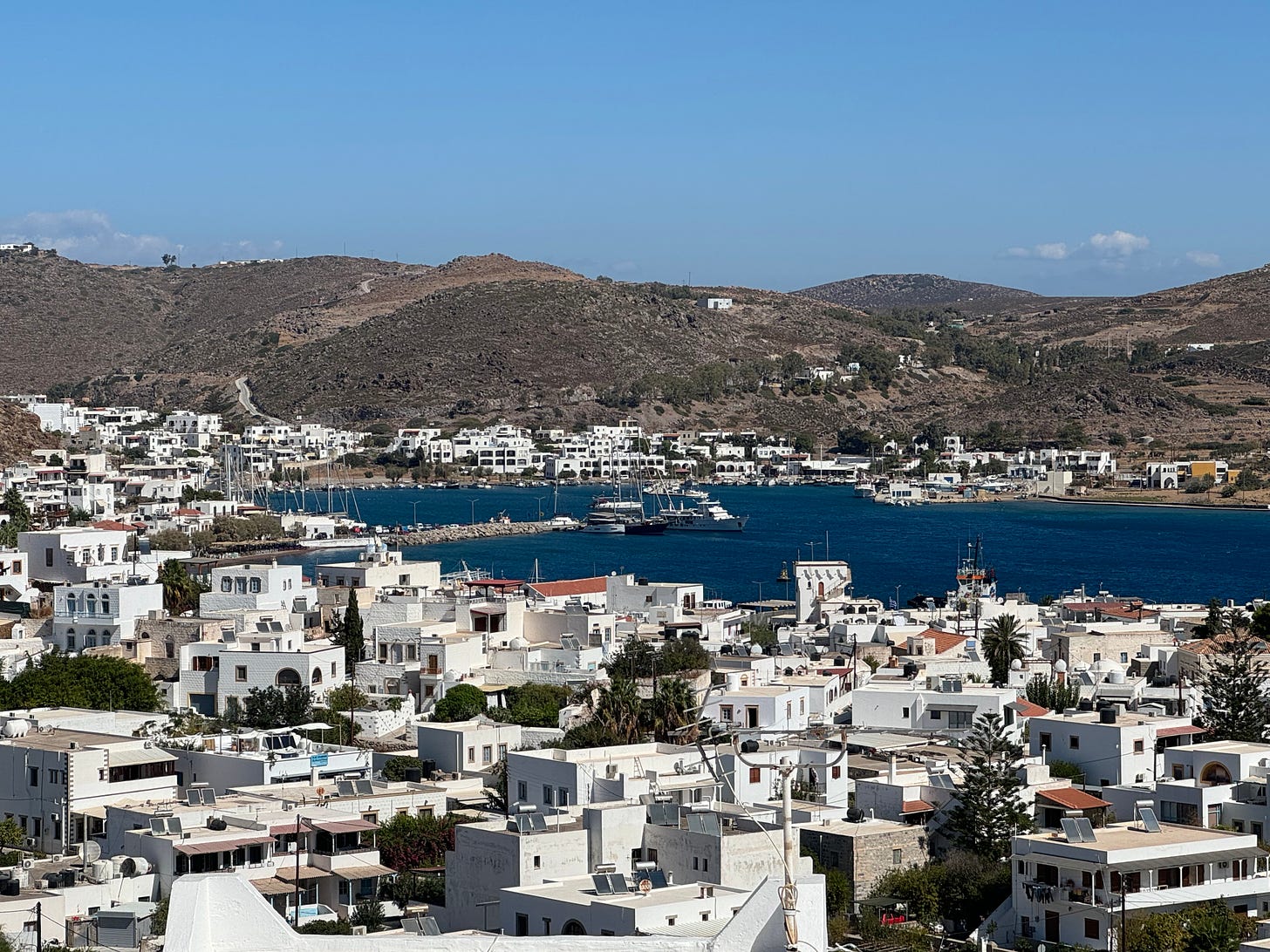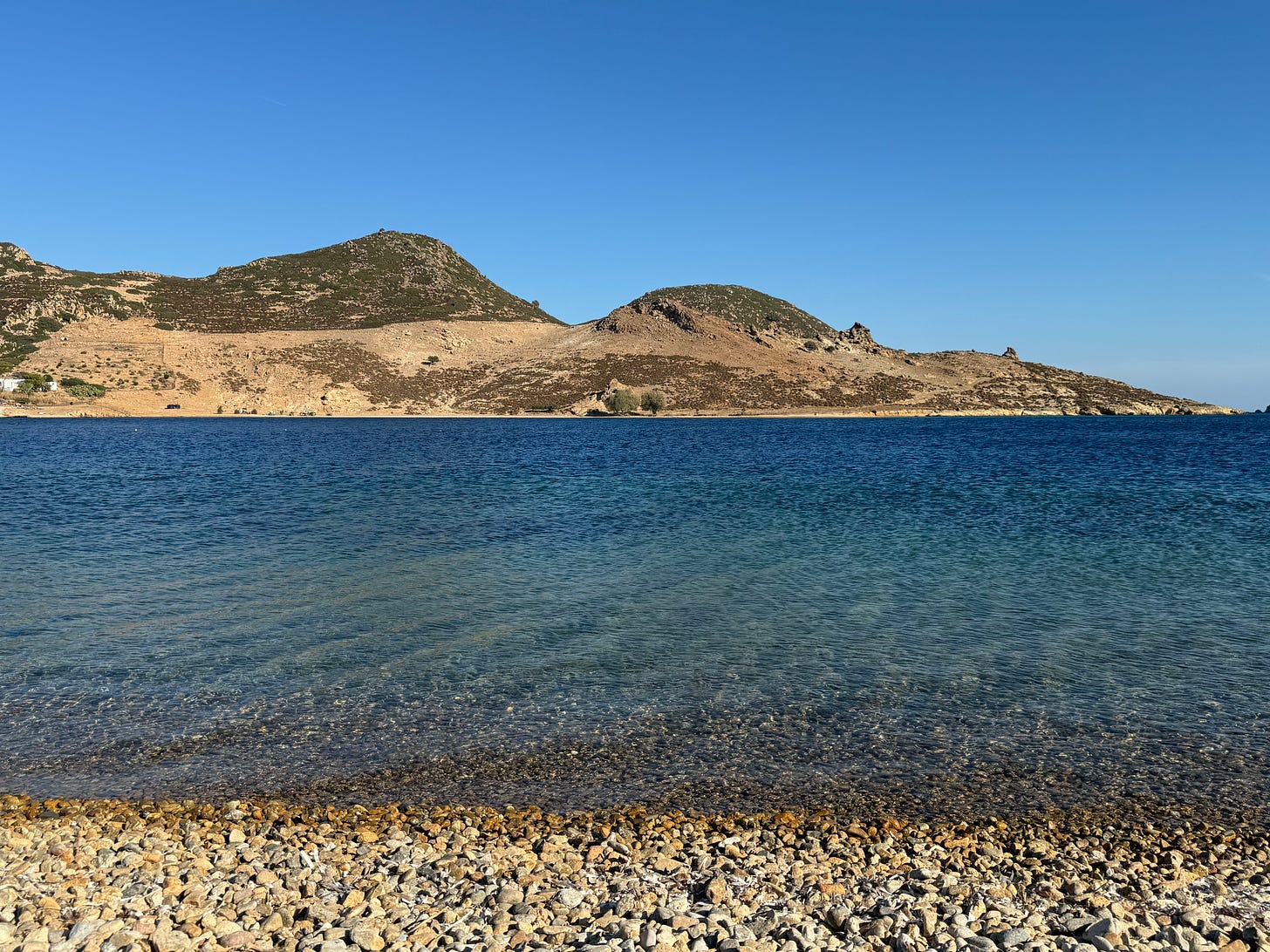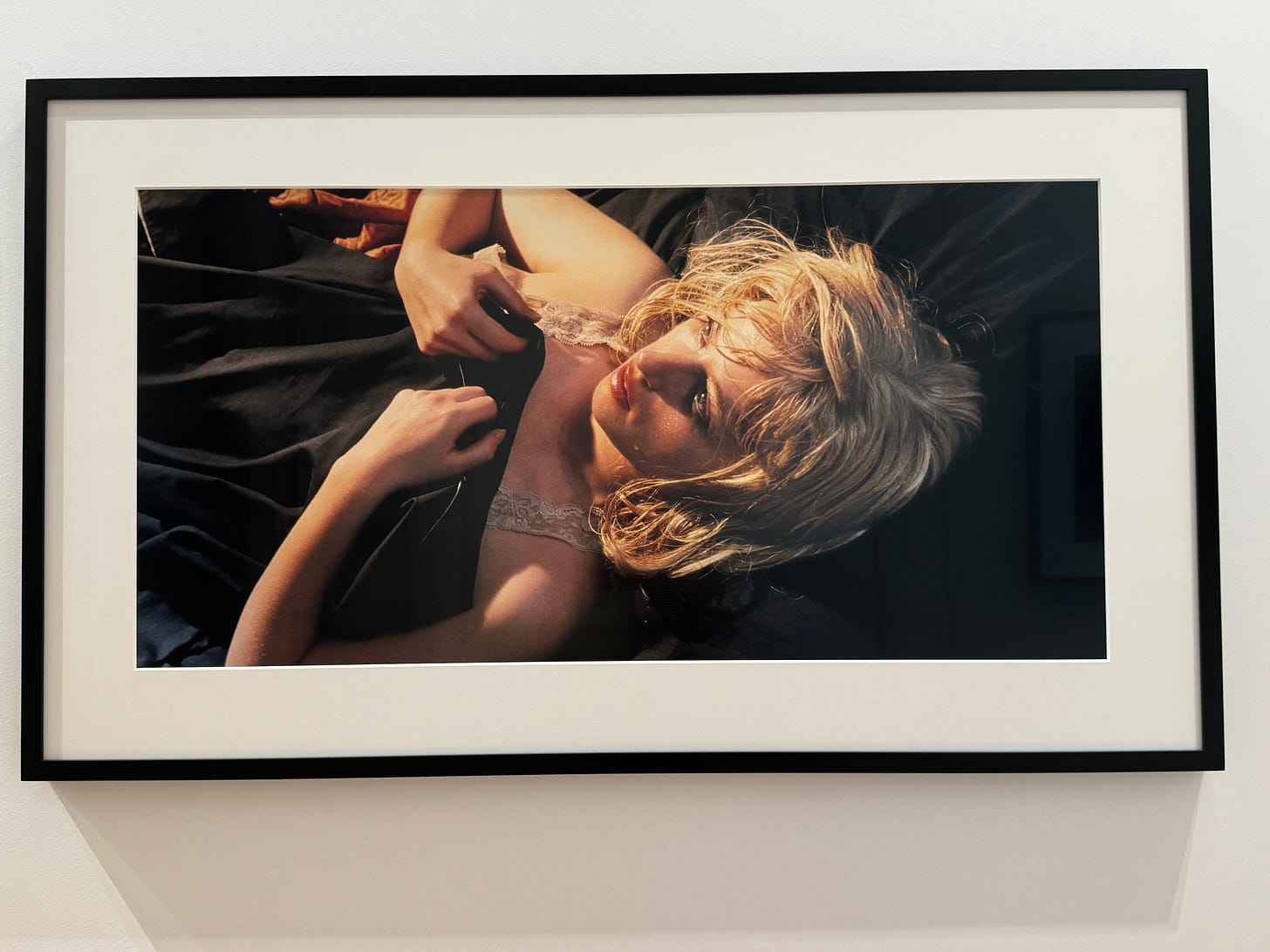Solitude, sea, and patriarchy
From ancient Greece to modern France, precious little has changed
I’m back in Paris after a week alone in Greece, most of which I spent on the Island of Patmos. I feel restored. I realized this summer that, as much as I enjoy visiting new places with lovers, with friends, or with my kids, solo travel has become essential for me. It’s only after an extended period of being alone with my thoughts and away from the responsibilities of daily life that I can truly reconnect with myself.
I traveled alone often when I was in my teens and early 20s, but once I got married, I stopped. I’d travel for work, of course, fairly frequently, but that’s different. You’re on a mission. You have purpose. And as a journalist, when you’re not out interviewing people you’re somewhere writing or going over your notes. There is no downtime.
The first time I remember being conscious of being a woman traveling alone was shortly after my first marriage hit the skids. I was confused about what I wanted to do about us and I couldn’t stand the sight of my husband. I needed to get away, fast, but didn’t want to go for long. So I went to Atlantic City, just a couple of hours from Manhattan, where I was living at the time. I sat at the hotel bar and ordered food and drank martinis and read a book. I enjoyed myself, but I was self-conscious about being a woman alone.
Back then, I needed the book as a crutch, a way of signaling to those around me that I wasn’t at a loose end but was engaged in an activity. Over the course of other dinners alone, I started putting the book down and observing what was going on around me. Now I don’t even do that; I’m lost in my own thoughts.
I went to Patmos because I needed the mental space to work on a proposal for a memoir that will be an expansion of my Modern Love column about my second marriage falling apart during Covid. But also because I needed to swim in the Aegean. The Greeks say the sea is medicine; I think they are right. And while, having spent much of my youth in Southern California, I am a junkie for pretty much any body of salt water, the Aegean is uniquely sanative for me.
I love the abandon that comes with traveling alone, the freedom to do what I want when I feel like it. I find that when I’m on my own, I wind up eating a single daily meal in the late afternoon. This past week, I’d wake up and write all morning, head to the beach around 1pm or 2pm, swim and read and sun for few hours, then drag myself away from the sea and eat something at around 4pm. I’d go home, nap, eat whatever leftovers I had from lunch, and work a little more. It was one of the most perfect weeks of my life. I had all sorts of plans to catch up on email and paperwork, but instead I completely disconnected. I don’t think I answered more than four emails the whole week and was only minimally responsive on text.
Fittingly, I was reading the Histories by Herodotus for my book group while I was there. As nice as it was to be in Greece reading about the ancient Greeks, I found the book kept pulling my thoughts back to France.
Early on in book one, Herodotus tells the story of Candaules, who thought his wife so beautiful that he wanted his bodyguard Gyges to be able to see her naked. She would never allow that, so despite Gyges’ initial refusals, Candaules arranged to for Gyges to observe her undressing without her knowledge. As I read that, I couldn’t help thinking of Gisèle Pelicot, the woman I wrote about in an previous newsletter whose husband drugged her and invited men to rape her.
Unlike Gisèle, the queen, whom Herodotus doesn’t bother naming, realized was going on. She said nothing until the following day, when she told Gyges that he had two choices: Either he kill Candaules and seize the throne with her as his wife, or be executed himself on the spot. He chose the former.
Both of these women were treated like belongings by their husbands, playthings that could be used or shared as the men saw fit. And, while they were treated as chattel, they each took control of their lives and stood up to their husbands, Gisèle by testifying against hers in front of the whole world. Even in their moment of deepest degradation, these women found agency.
I don’t move through the world looking for proof that we live in a patriarchal society; the reminders are everywhere. After Patmos, I had two days in Athens. I wandered down to the Museum of Cycladic Art, where, somewhat surprisingly, they had an exhibition of Cindy Sherman’s early work, including her breakthrough series Untitled Film Stills. I was most taken, though, by her Centerfolds images. They seemed so clearly to be subverting the male gaze that I was surprised to later read that she said she didn’t see her work as having a feminist agenda. But she didn’t have to. The very act of controlling both the way her image was conveyed and portrayed, being both object and subject, was subversive.
Any move of agency and self-ownership we undertake as women, any attempt to reclaim our lives, our bodies, ourselves, is an act of resistance. We might not be able to control the way we are seen or put an end to our objectification, but as Sherman, Gisèle, and an unnamed Lydian queen all show us, there is dignity in defiance.
I applaud these women and would love to be able to end this newsletter on a hopeful note, but I can’t, because what I really feel is anger, defeat, and disgust. Two and a half millennia after Herodotus wrote about a woman being used by her husband as an object for his self-glorification, Gisèle Pelicot’s trial has shown us that, in all that time, precious little has changed.






Beautiful. Beautiful. Beautiful.